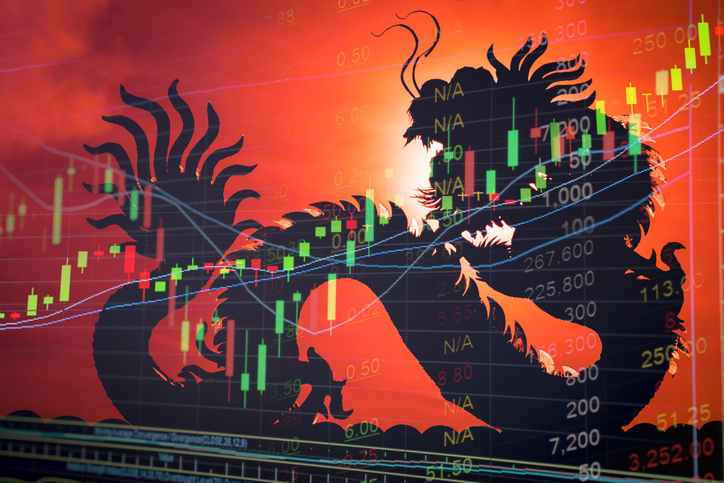
Some of the recent headlines coming out of China have been troubling, to say the least. But if you’re looking for growth, there are plenty of good reasons to invest in the world’s second-largest economy. Here we outline some of the arguments for and against investing in China.
One of the hottest – and most hotly debated – investment topics of this year has been China. The world’s second-largest economy rarely seems to be out of the headlines, and most of them are disturbing. Back in June, the new security law imposed on Hong Kong, removing the region’s autonomy, was considered to have been China’s boldest – and most worrying – political manoeuvre in years. And just last month, Foreign Secretary Dominic Raab accused China of human rights abuses against its Uighur population, suggesting that sanctions from the UK government could follow.
Donald Trump’s favourite enemy
That’s not to mention the ongoing trade war between China and the US, and seemingly endless headlines expressing concern over state-controlled businesses such as Huawei and even TikTok (if you haven’t heard of TikTok, we suggest you ask your children or grandkids).
So perhaps the bigger question is, what is it about investing in China that makes it worth the risk? And would investors be better off avoiding the region altogether?
There are plenty of reasons why investing in China is a good idea
In pure investment terms, investing in Chinese markets can be a valuable way to diversify your investment portfolio. It has been one of the few regions to have performed well during the pandemic this year, and the returns from Chinese stock markets are not closely correlated to British or American stock markets. That’s a definite plus point during volatile times.
And there are longer-term reasons to be keen on China. As well as being the world’s largest exporter, China has a huge domestic market, and is home to some of the world’s largest companies that you may, or may not have heard of – like Alibaba, TenCent, PetroChina and Xiaomi. However, it is worth noting that Chinese companies don’t have a tradition of paying dividends, unlike companies in the UK. Investors look to China for growth, rather than income.
China drives the global economy
In many respects, China’s economy, which emerged from lockdown just as the rest of the world was entering, has a head-start on the rest of the world, and this is an advantage China intends to keep. And, for all the bad press China has been receiving recently, its exports seem to be relatively unaffected. China is tightly weaved into the fabric of the global economy, which has begun whirring again, so China is pushing its inventory stock out and increasing exports dramatically.
But China’s politics are leaving it with fewer friends
However, political risks around China appear to have increased dramatically – there has even been some talk of a new ‘cold war’ between the US and China. But President Trump’s bluster might quieten down if the US economy doesn’t recover enough to improve his election chances in November. And, with governments all over the world desperate to avoid a lengthy and damaging economic downturn, they may have no choice but to deal with Chinese businesses for the foreseeable future. Even so, the threat of wider-reaching sanctions, or stealth sanctions in the form of red tape and regulation changes, remain a threat.
What does the investment community think of China?
When it comes to China, two so-called inevitabilities are often taken for granted. First, that China’s economy will one day inevitably overtake the US economy to become the world’s largest. And second, that China’s investment universe will inevitably one day become fully integrated into the financial systems we enjoy here in the west. But both of those outcomes will only happen if China maintains good relationships with the rest of the world. Even with China’s impressive recent strengthening of its domestic economy, the stellar growth seen over the last two decades cannot continue if it becomes decoupled from its major trading partners. It won’t matter how valuable Chinese companies are if trade wars and sanctions make China an international pariah. And, while there has been huge demand for Chinese domestic assets from overseas investors recently, that demand could be dented if those assets come with big political risks, or could even result in capital invested in China being frozen as part of escalating sanctions.
For now, investors continue to back Chinese stocks, despite the rising geopolitical tensions. But at what point will the political uncertainties overtake the investment case? Recent events have shown that investors are justified in questioning the ethics of owning Chinese stocks. China’s economy is the second-largest in the world, but is easily the most controversial. It is perfectly reasonable for investors to now consider investing in China on a par with investing in other countries with poor human rights records, or non-ethical investment sectors such as tobacco, military-grade weapons or oil companies.
Summary
Whatever your views on China and its politics, it is an investment market that is hard to ignore. The sheer size of China’s economy, its continued growth and ever-increasing global importance, are all very good reasons for investors to consider increasing their exposure to China when building a balanced investment portfolio. But whether you think China deserves a place in your investment portfolio has now become a highly personal and political decision.
If you are interested in discussing your financial plan or investment strategy with one of our experienced financial planners at FAS, please get in touch here.
This content is for information purposes only. It does not constitute investment advice or financial advice.





